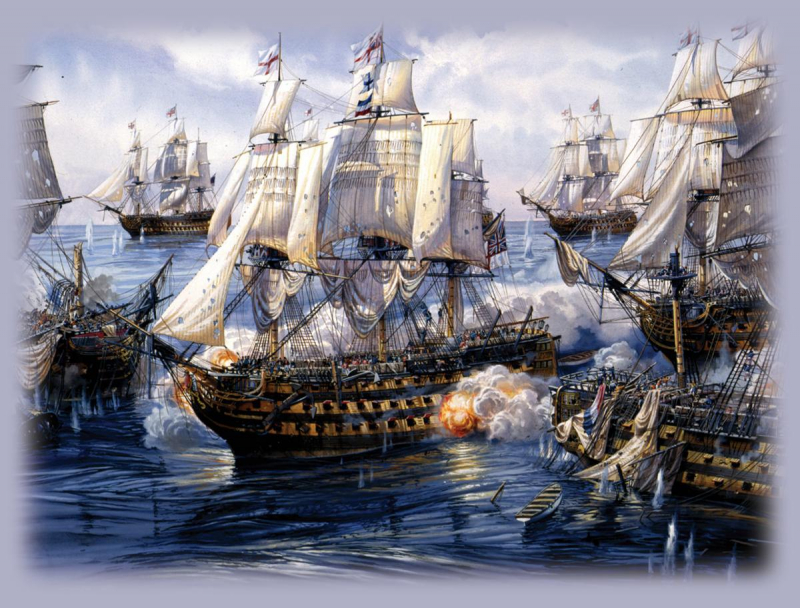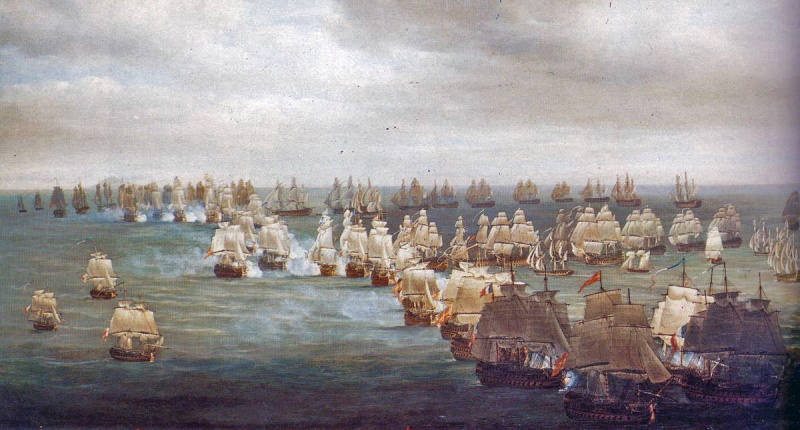Battle of Trafalgar
The next position on the list of wars that changed the history of the world is the battle of Trafalgar. During the War of the Third Coalition (August–December 1805) of the Napoleonic Wars (1803–1815), which lasted from 1803, the British Royal Navy and the combined fleets of the French and Spanish Navies engaged in battle on October 21, 1805.
This naval conflict, which took place at Cape Trafalgar in Spain between the British Royal Navy and its two main adversaries, the Spanish Navy and the French Navy, is regarded as the most significant naval conflict in human history (more significant than the ancient Battle of Salamis, the Medieval Battle of Lepanto, and Midway during World War 2). The British initially just saw the conflict as a tactical defensive action, but its outcomes had a lasting impact on not only the war in Europe at the time but also on the course of history for decades to come.
The decisive naval victory of the Napoleonic wars came at the Battle of Trafalgar. In addition to decimating the French and Spanish navies, the British also laid the foundation for their dominance of the seas for the following 100 years, ushering in the illustrious Victorian era in British history. The conflict also marked the end of sailing ships and the beginning of steamships, two significant human scientific advancements.













